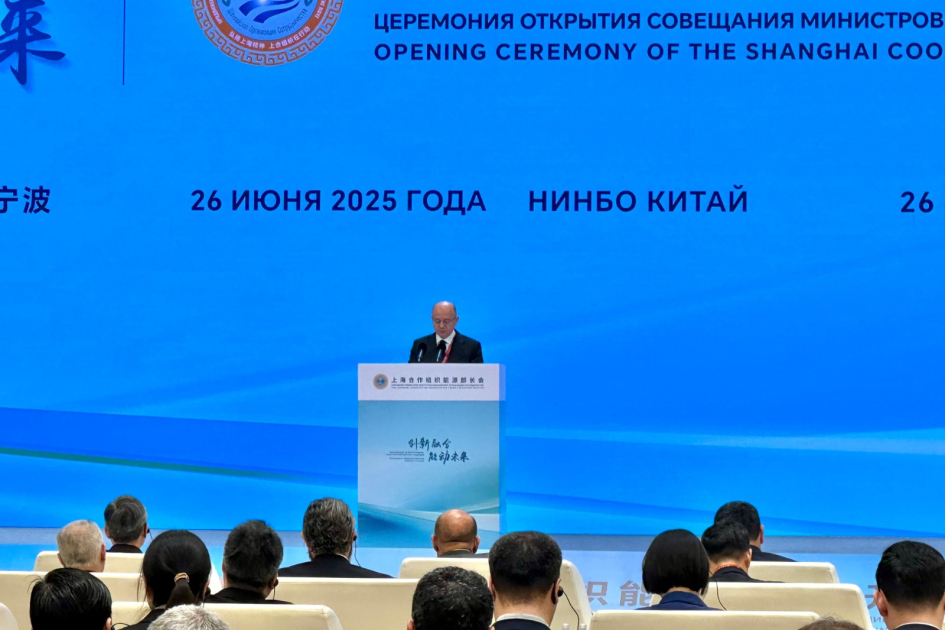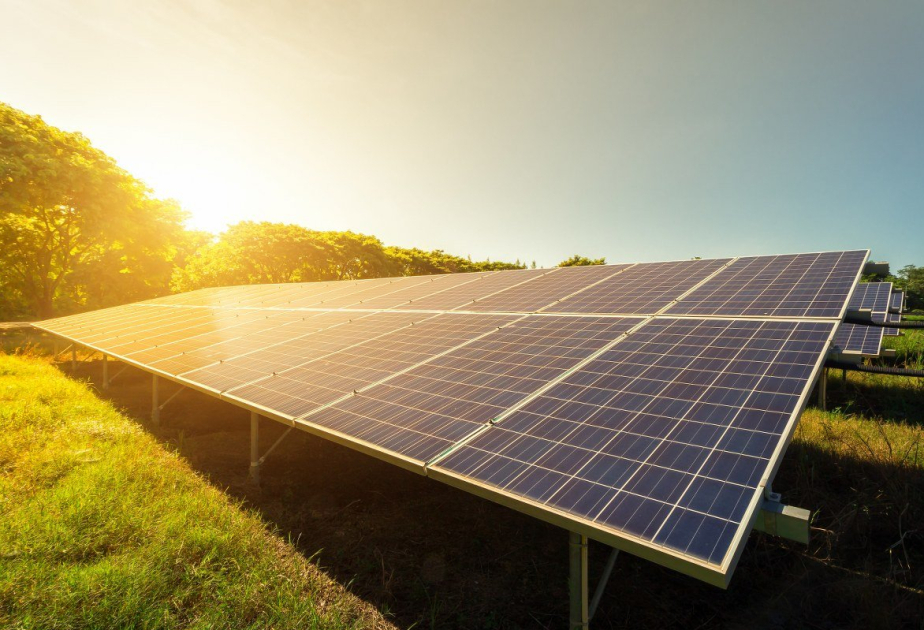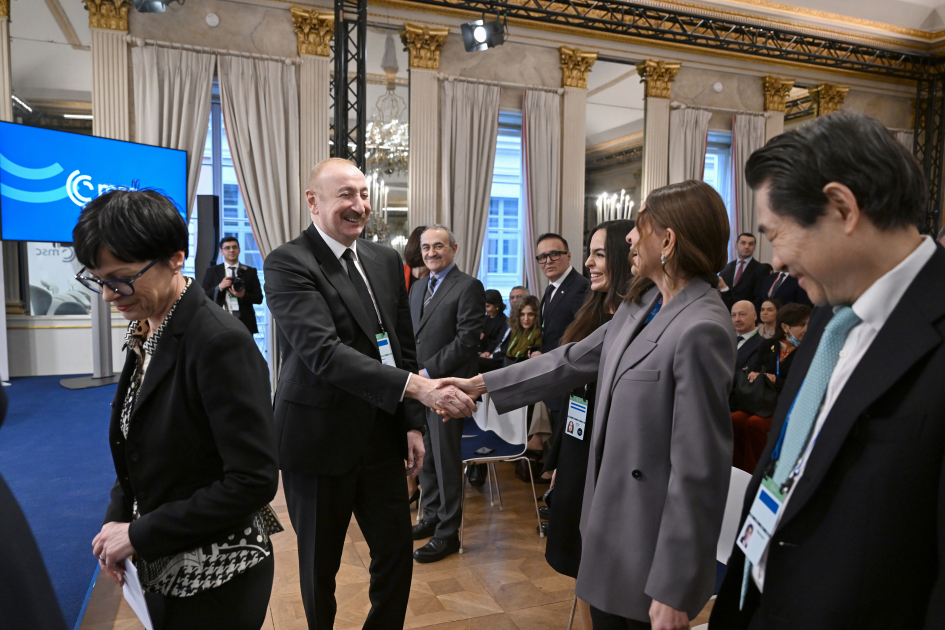Azerbaijan represented at Shanghai Cooperation Organization energy events in China
Azerbaijan's Energy Minister Parviz Shahbazov spoke at the opening ceremony of the Shanghai Cooperation Organization (SCO) energy ministers’ meeting and the forum titled “Industrial Innovation as a Driving Force for Sustainable Energy Development” held in Ningbo, China.
According to the.Minister Azerbaijan, as a dialogue partner, places special importance on deepening cooperation with the SCO. He emphasized that President Ilham Aliyev’s active participation in the organization’s summits in recent years and the signing of a strategic partnership declaration with China within this platform underscore the significance of this collaboration. The Joint Declaration on the establishment of a comprehensive strategic partnership, signed in Beijing in April this year, marks a new phase in Azerbaijan-China relations while also boosting cooperation with the SCO.
The platform enables countries to leverage their diverse strengths—such as fossil fuel reserves, renewable energy potential, infrastructure, and technological capabilities—creating a favorable environment for multilateral energy cooperation and a just energy transition. China’s significant contributions through advanced technology and innovation were particularly highlighted.
The discussions highlighted Azerbaijan’s “green energy” projects with SCO member states, including joint initiatives with China, Kazakhstan, and Uzbekistan. Azerbaijan expressed interest in expanding cooperation with China, ranging from technology transfer and joint projects to research collaboration and human capital development. The strong friendship between President Ilham Aliyev and Chinese President Xi Jinping, combined with the elevation of Azerbaijan-China relations to a comprehensive strategic partnership, provides significant momentum for advancing the “green energy” agenda. It was noted that Chinese companies currently play a key role as contractors and investors in implementing Azerbaijan’s “green energy” strategy, with plans for the phased construction of wind and solar power plants with a total capacity of approximately 2.3 GW and the development of offshore wind energy projects in the Caspian Sea with a capacity of around 2 GW.
Minister Shahbazov emphasized that cooperation with China is particularly significant for realizing “green energy corridors” based on the Caspian Sea’s 157 GW wind energy potential and Central Asia’s renewable energy resources: “The joint project of Azerbaijan, Kazakhstan, and Uzbekistan—the ‘Trans-Caspian Green Energy Corridor’—integrated with the ‘Caspian-Black Sea-Europe’ and ‘Azerbaijan-Turkiye-Europe’ green energy corridors and interconnectors, will enable large-scale and uninterrupted renewable energy transmission along the ‘Middle Corridor’ between Asia and Europe. Green energy interconnectors are critical infrastructure elements that facilitate the delivery of unevenly distributed and variable solar and wind energy to regions in need, ensuring efficient use of renewables and mutual resilience among energy systems. In this context, regional integration will become a key mechanism for transmitting ‘green energy’ from SCO countries through Azerbaijan to Turkiye and European markets. This cooperation will not only expand technology transfer and investment opportunities for China but also support the ‘Green Silk Road’ initiative and the SCO’s energy agenda with practical outcomes.”
The minister also shared his views on the role of innovation in the global energy sector, which is undergoing a profound transformation amid challenges such as energy security, climate commitments, and economic sustainability. Azerbaijan’s “green energy zones” model, the construction of wind and solar power plants to increase the share of renewables in installed capacity to 38% over the next five years and approximately 43% by 2035, the use of offshore wind energy, and interconnector projects were highlighted as being driven by innovation.






















